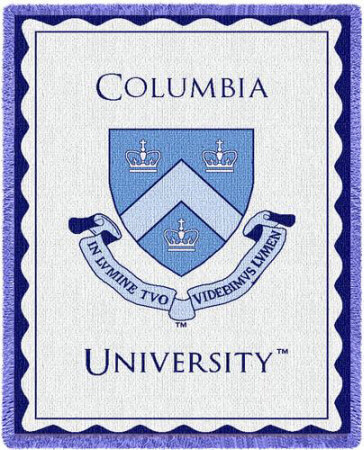
At one time, I was inclined to think that the biggest mistake students made on the GRE was failing to back up their responses with concrete examples. Mere hypothetical scenarios were the only ballast these weak Analyze an Argument essays had. So I advised students to think of concrete examples to help support their points.
The ‘Concrete Examples’ Trap
What I’ve come to realize is that almost every test prep outfit recommends including specific examples, but that’s often where both they and the students stop, in terms of providing support. So what we have are essays with vivid examples but little to no analysis of the question.
Nowhere was this tendency clearer than when we had a little promotion offering free essay grading service. At least half of the essays had specific examples, instead of vague hypotheticals. Of these, many had examples that were extremely lacking, and felt tacked on, at best. The other half that had fleshed out examples may have seemed paragons of great writing, or at least what the GRE is apparently looking for, which is the coveted ‘6’. Yet, none of these essays received that score (based on our grading); some even scored much less.
The reason is the GRE wants to see how you analyze a complex issue. It chooses prompts that it wants you to explore, before arriving at a nuanced position, one that is not a simple “yes” or “no”, followed by three examples that, while heavy on details, are devoid of analysis.
Let’s Look at Sample Essays
Below are two essays. Each has an intro and one body paragraph written in response to an official prompt, which you can find here.
As you read, I want you to make some judgments on the essay, the style, etc. Also, pay attention to the logical structure of the paragraph and how the writer develops (or doesn’t develop) their position.
Essay 1
Technology is becoming a bigger part of our lives each day. People are always on their cellphones or in front of a computer. This is not good for our ability to think clearly. Therefore, humans will not be able to think for themselves as time goes on.
People spend lots of time on social media sites, like Facebook. They “talk” to friends, but they really aren’t spending quality time. Many reports indicate that people also feel sad and depressed when they are on Facebook and other social media sites. They have difficulty focusing and thinking, being social human beings. This is what is deteriorating. If it continues like this, humans ability to think will lessen.
Essay 2
From the mundane—virtual calendars that have each minute of each day planned out for the next three months—to the profound—diagnostic tools that allow physicians to capture cancer in its earliest stages—technology is greatly shaping the way we live, and think. With this increased reliance, some argue, surely our ability to think for ourselves becomes diminished. After all, many of us are unable to recall our home phone number, or those of any of our close friends, since everything is stored on an electronic device. While it is tempting to think that such dependence portends an apocalypse in thinking skills, much of the technology we use today actually allows us to function more efficiently, and focus our attention on thinking about those things that matter most.
Nowhere are information and the ability to use that information more critical to our lives than in medicine. Doctors inundated with patients and the record keeping this entails are more prone to making errors. Some of these errors might seem venial—thinking an allergy is a cold. Other oversights, however, can be downright lethal. Fortunately, in the last decade, technology has played a far greater role in both informing and guiding the decisions of physicians. Patient histories that were previously lost if the patients entered another provider can now be easily accessed via electronic devices. Timely and redundant procedures can now be dispensed with, as a doctor, with a quick flick of the wrist, can use an iPad to access a patient’s history—one that has sedulously been stored in a database. Doctors can now focus on those fields in which technology has yet to catch up with the human intellect—the diagnosis, the ability to read an X-ray. Indeed, they will have more time to hone such skills, to augment their thinking, as much of the minutiae of medicine can be “outsourced” to technology. That is not to say that technology has become a panacea, as it were, for the medical profession; human error can pop up in anything from transfer of records, to a doctor becoming overly reliant on the Internet to determent of her clinical skills. Yet those very oversights technology itself will be able to redress, as doctors become better at documenting any oversights and making such discoveries available, via technology, to a wider audience. In sum, as technology becomes a greater part of the medical profession, physicians will better be able to focus and refine their uniquely human thinking abilities.
Homework
In the second part of this blog post series (coming soon!), I will analyze each essay, citing its merits and its flaws.
Before you read that post:
- List two to three things you think the essay does well and two or three things you think it doesn’t do so well. (Remember what I mentioned at the beginning of the post: the goal is to not simply answer yes or no, but to take a relatively nuanced position.)
- Give the essays a score, keeping in mind that you can only judge the first two paragraphs of each essay. Feel free to share your thoughts as a comment.
Remember that the makers of the GRE provide all of their possible essay prompts on ets.org. With 200+ possible options, though, it’s impossible to practice them all. The solution? Break the main post topics into categories and practice GRE essay topics from each category.






Leave a Reply